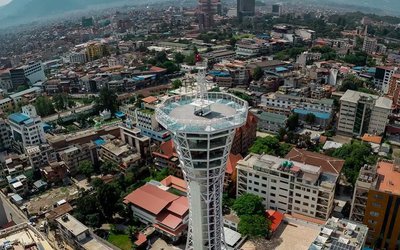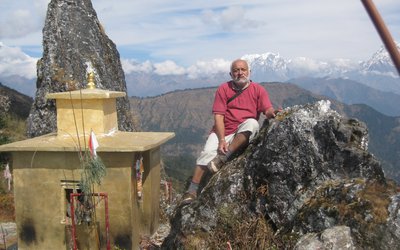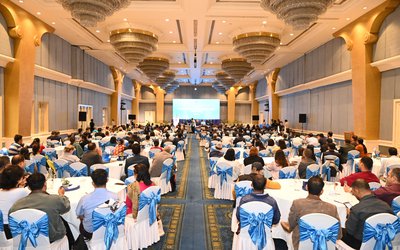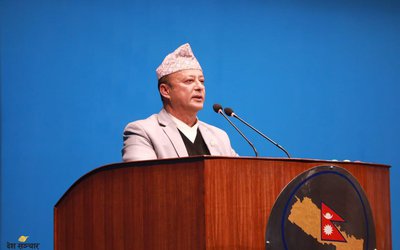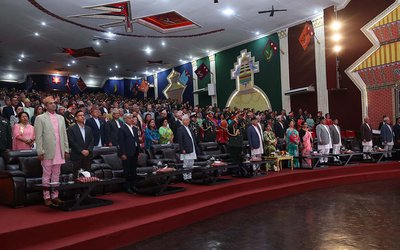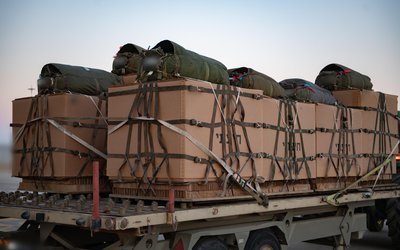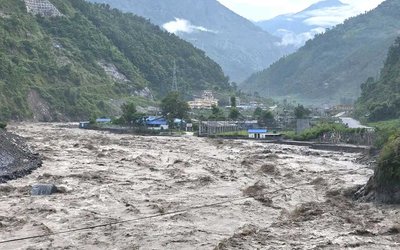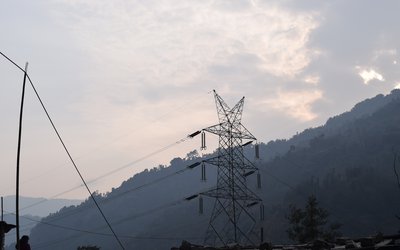In 2025, Nepal’s Madhesh Province stands on the brink of a humanitarian disaster. Failed monsoon rains, dried-up wells, and cracked farmlands have forced the federal government to declare the region a “disaster-affected zone.” But beyond these alarming statistics lies a deeper crisis: families are being forced to migrate, and children are bearing the heaviest burden.
In districts like Saptari, Siraha, Bara, and Parsa, access to water has become a daily struggle. Tube wells, once dependable sources of drinking water, have dried up in most villages. Rivers such as the Kamala and Bagmati run too shallow to support irrigation, depriving farmers of the water needed to sustain their crops. In response, the Nepal Army and fire brigades have been dispatched to deliver water by tanker. Yet in many places, people still wait for hours under the blazing sun just to fill a single container.
Emergency relief provides only temporary respite and cannot stem the growing tide of climate-driven migration. With crops failing and irrigation unavailable, families have lost their primary sources of income. Many are leaving their homes, some moving to cities like Kathmandu, while others cross into India in search of work, food, and survival.
Children are at the heart of this crisis. Across Madhesh, students, especially girls, are dropping out of school to spend their mornings collecting water. Teachers report rising cases of heat-related illness and poor attendance. Children walk barefoot under the scorching sun, searching for working taps, leaving classrooms half empty.
As parents migrate to find work, many children are left behind with elderly relatives or uprooted entirely. This constant movement disrupts their education and sense of community. Without water, harvests, or income, families have no choice but to leave, and it is the children who pay the highest price: their classrooms, their routines, and often their futures.
This crisis is not isolated. It reflects a broader pattern across Nepal’s southern plains, where climate change is turning once-stable villages into zones of desperation and displacement. Madhesh, long known as an agricultural hub, is becoming a corridor of forced migration.
In 2025, the Sagarmatha Sambaad, Nepal’s flagship global dialogue on climate change, brought together leaders, experts, and youth from around the world to discuss “Sustainable Mountain Solutions for Climate, People and Planet.” While the event focused primarily on mountain regions, it underscored the interconnectedness of Nepal’s ecosystems, from the Himalayas to the Terai plains. Civil society and youth delegates stressed that climate impacts in the lowlands, such as drought and displacement, demand urgent attention alongside mountain conservation.
Experts emphasize that Nepal’s response must go beyond humanitarian relief to embrace transformative action. Restoring the Chure (Siwalik) hills, which feed Madhesh’s rivers, is essential to recharging groundwater aquifers. Equipping schools with clean water and sanitation is critical to keeping children healthy and in class. Supporting farmers to adopt multi-cropping and climate-smart agriculture can restore livelihoods and reduce pressure to migrate.
Even before the drought worsened in 2025, some communities showed promising progress. Since 2023, groups in Saptari have installed biosand filters and rainwater harvesting ponds, while women-led communities in Bara built irrigation canals and household taps. These low-cost, locally driven solutions have helped reduce waterborne illnesses and improve school attendance. As the crisis deepens, scaling up such initiatives is crucial.
But these efforts need scale. Without bold investment and political will, migration from Madhesh will only increase. And the children left behind, displaced, thirsty, and disconnected, will continue to suffer the consequences of a crisis they did not cause.
Nepal has taken a moral stand on the world stage, demanding climate justice. But justice must begin at home. The families of Madhesh deserve more than emergency water tankers and empty promises. They deserve a future where migration is a choice, not a desperate escape.
The time to act is now, before an entire generation grows up on the move, searching for water, land, and a place to belong.
- Nepal's Migrant Workers in Gulf Crises: Caught in the Crossfire
- Jun 28, 2025
- Nepal’s Real Battle: Strengthening Democracy From Within
- Jun 09, 2025
- Nepal’s Geo-strategic Superpower: What If We Took Geography Seriously?
- May 03, 2025
- Beyond Policy: The Unfinished Fight For Women's Empowerment In Nepal
- Mar 12, 2025
- The Hidden Plight: Children In Agriculture And The Looming Shadow Of Hazardous Labor
- Jan 27, 2025

